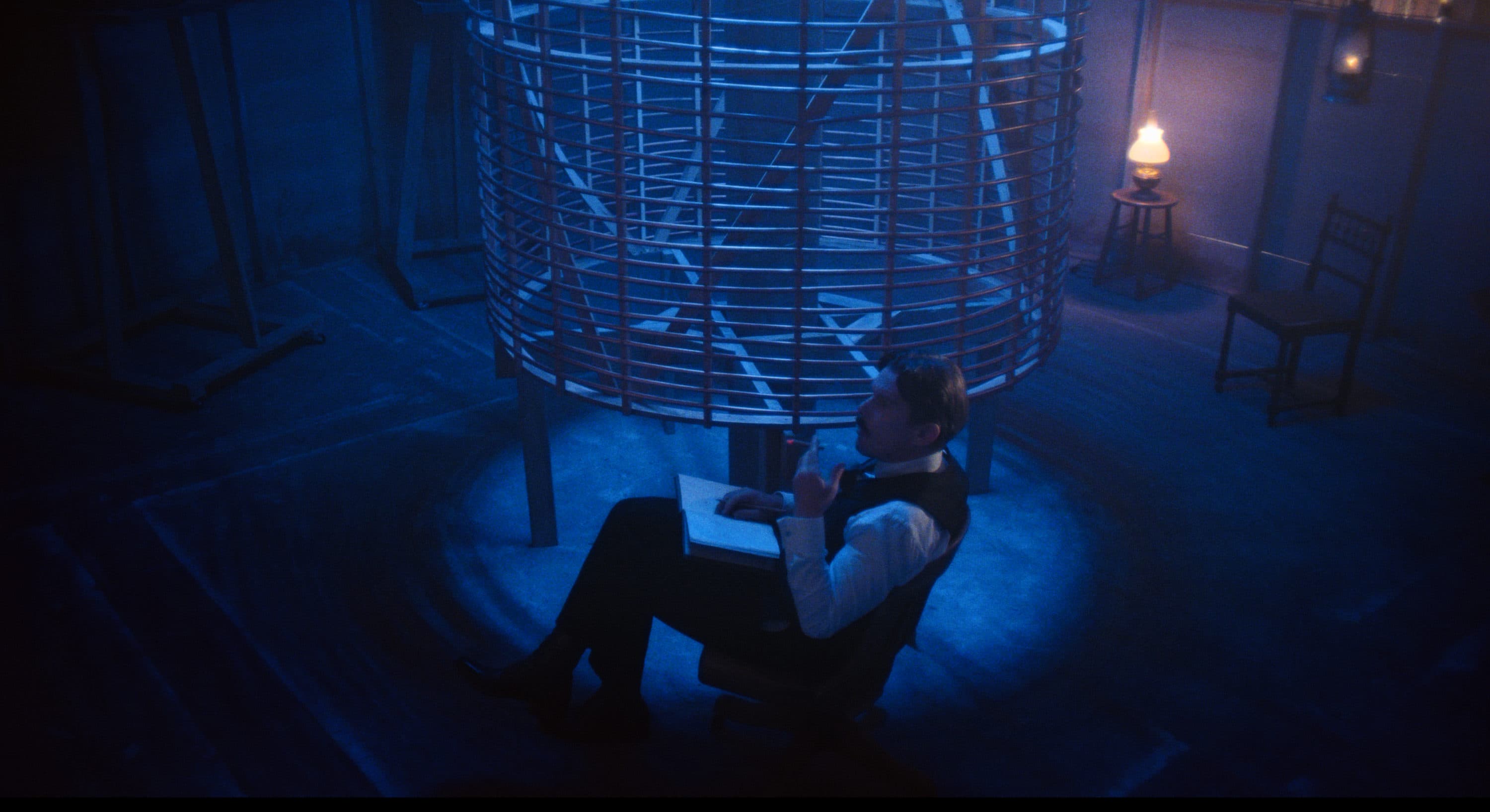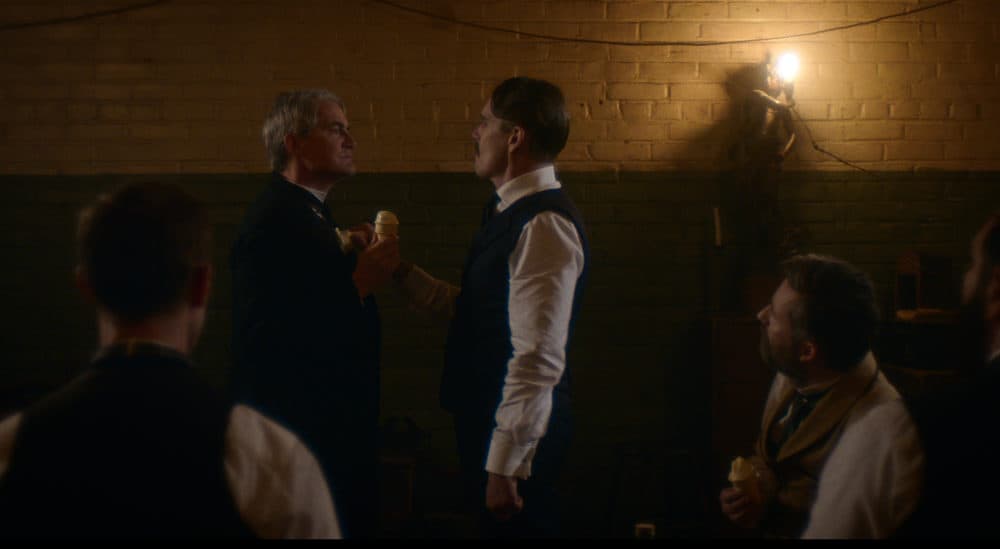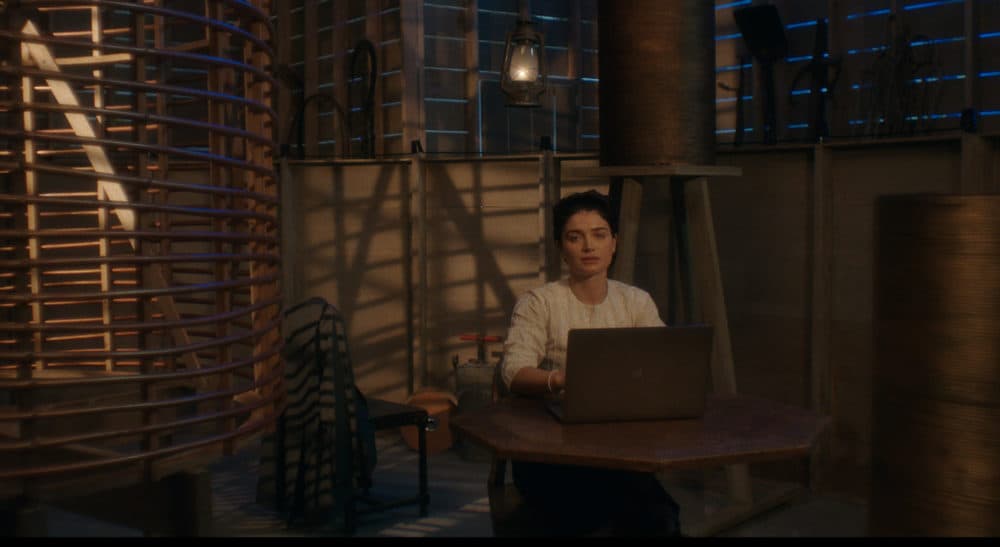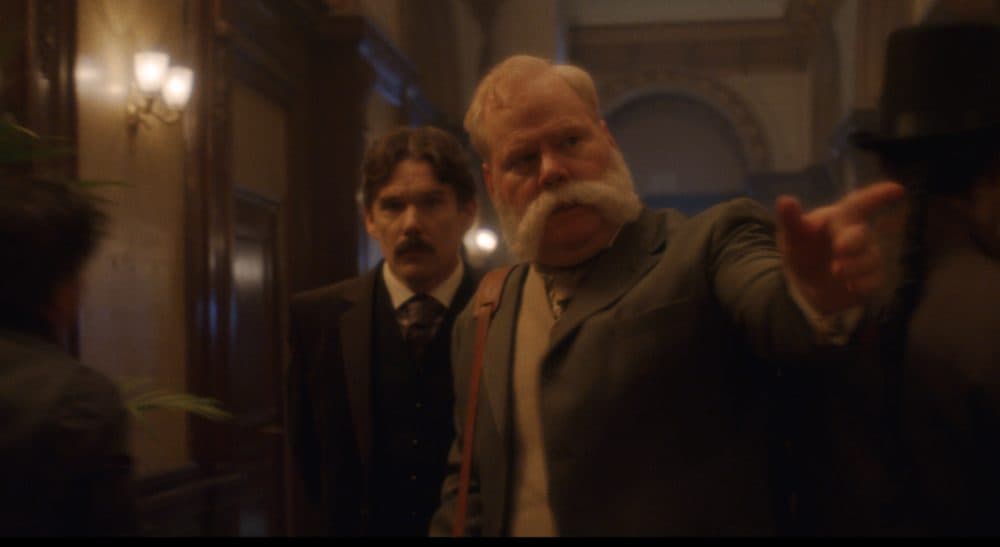Advertisement
Review
Biopic 'Tesla' Serves As A Reclamation Of The 19th-Century Inventor’s Name

Aren’t biopics terrible? Easily my least favorite genre, these inexplicably beloved award-hoarders flatten out the lives of fascinating figures into drearily simplistic cause-and-effect narratives, usually fabricating a single childhood trauma into some cheapjack Freudian skeleton key for everything accomplished thereafter. No expense is spared in recreating the precise period settings for scenes that never actually happened, with strenuous mimicry of available file footage lauded in lieu of actual acting. This elevation of phony verisimilitude is how someone wins an Oscar for lip-syncing in false teeth.
Michael Almereyda’s “Tesla” kills biopics dead. Knowing full well there’s no way a movie can do justice to the events of a person’s life, it’s instead a movie about the idea of a person’s life, one that never lets us forget we’re watching a movie. Interrupting itself for fact-checks and inserting playful anachronisms throughout, this portrait of the perpetually thwarted 19th-century inventor implores us to think beyond facile reproductions of what the subject did and instead meditate on what Nikola Tesla means — a genius chewed up and spit out by capitalist machinations beyond his understanding. In form and approach, it’s the most radical deconstruction of the biopic since Todd Haynes had six different actors playing aspects of Bob Dylan in his 2007 masterpiece “I’m Not There.”
In a way, the movie serves as a reclamation of Tesla, whose name has been sullied in recent years by association with obnoxious billionaires and electric luxury cars, returning him to the status of an underground cult hero seldom discussed in high school textbooks. (I got C’s in science, so most of what I know about the inventor I first learned from The White Stripes’ segment of Jim Jarmusch’s “Coffee and Cigarettes,” and of course David Bowie’s killer cameo in “The Prestige.”)

As played here by a wonderfully withdrawn Ethan Hawke, Tesla’s a mystery even to himself, first seen fumbling around on roller skates and botching the basics of human interaction. In a canny bit of casting, Almereyda reunites the rivals of his marvelous “Hamlet” modernization 20 years later, with Kyle MacLachlan outdoing his sinister corporate Claudius as a hilariously haughty Thomas Edison. The war between their alternating and direct current delivery systems here takes the form of a food fight, both actors menacingly slurping on soft serve ice cream cones before mashing them into each other’s faces.
Of course, that’s not how it happened, explains actress Eve Hewson, who in addition to playing the role of Anne Morgan also serves as the movie’s narrator, hanging around an abandoned soundstage set with a MacBook, pausing the action to Google stuff and provide biographical overviews of incoming characters. The ice cream fight seems to be where “Tesla” loses a lot of the audience — or at least that appeared to be the case at my Sundance screening back in January — but how much more ridiculous is it, really, than the contrivances and oversimplifications we’re expected to swallow in any conventional Hollywood biopic?

Almereyda makes comically little attempt to recreate life in the late 1800s. A lot of the scenes take place on sparsely furnished sets with the actors in front of green-screened projections of black-and-white historical photographs, or sometimes even illustrations. I suppose there’s a sense in which this a budgetary cheat — no movie this experimental would ever be able to afford period trappings — but it’s also a sly commentary on film form. So many historical pictures want to wow us with the quote-unquote accuracy of expensively constructed backdrops that, for all the purpose they serve, might as well just be old drawings.
(I’d be lying if I said I sometimes didn’t feel a little claustrophobic spending so much time on these small sets with so few people, and I actually breathed a sigh of relief near the end when they went outside. But watching the film again last week, I wondered if the sparse style might accidentally be a preview of post-COVID filmmaking for the foreseeable future. We should probably start getting used to bare bones productions.)
Hawke continues his remarkable recent run of internalized performances, playing a character whose mind is always elsewhere, his furrowed brow conveying complete incomprehension of the financial wheeling and dealing required to fund his elaborate research. (Those endlessly expressive wrinkles on his forehead are the best things that ever happened to him as an actor.) MacLachlan is a condescending hoot. It doesn’t really matter that his Edison is hard of hearing because he probably wasn’t listening to you anyway, scoffing and scrolling through his iPhone so nonchalantly you forget those things won’t be invented for at least another century.

But the actor finds something touchingly broken inside the wizard of Menlo Park. Like most characters in “Tesla,” Edison is driven by tragedies and torments he could never articulate. Along with Jim Gaffigan’s sneakily avuncular George Westinghouse and Donnie Keshawarz’s vain, seething J.P. Morgan, they’re all cowboy conquistadors seeing science as the final frontier, manifesting every last bit of that destiny they can claim.
So where does this leave Nikola Tesla? Broke, bereft and singing Tears For Fears in Almereyda’s most audacious anachronism. The scene became the talk of Sundance this past winter, with initial roars of laughter and disbelief giving way to awed admiration. It works the way old musicals once allowed characters to sing things they’d never say out loud, like the shock of a normally uptight friend drunkenly spilling his guts into an overemotional karaoke performance, lamenting how everybody wants to rule the world.
"Tesla" opens in theaters and is available via video on demand Friday, Aug. 21.
